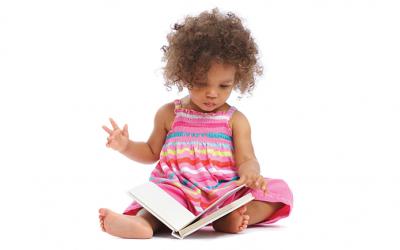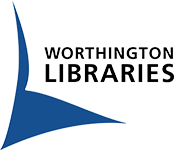Prepared by
Revised

Early literacy is what kids know about reading and writing before they can actually read and write.
You are your child's first teacher and preparing him or her to read can be easy and fun— whether you're at home or on the go!
Five of the best ways to prepare your child to read are talking, singing, reading, writing and playing.
Use this guide to learn more about these five early literacy practices and to get ideas for easy activities that you and your toddler can enjoy throughout the day.
Talking
At home
Expand on the things your child says. For example, if your child points out a flower, respond with: "Yes, that is a flower. That kind of flower is called a rose. Roses can be red, yellow, white or pink."
On the go
Point out signs, labels and logos as you and your toddler drive or go about your day. Talk about what different signs represent to help make your child aware of words and symbols all around them.
Books
Singing
At home
Clap along to rhythms when you sing or listen to a song. This helps children hear the syllables in words and helps develop motor skills.
On the go
Change the words in a familiar song to make something new. Instead of "Twinkle, Twinkle Little Star," sing about a quiet star or a great big star. Use your voice to help illustrate the new adjective: sing about the quiet star in a quiet voice or the great big star in a very loud voice.
Books
Reading
At home
Stop before a predictable word or line in a book and ask the child to chime in (this works especially well with rhyming books or those with repetitive text) to help them make new words from words they already know.
On the go
Relate the things that you are doing as you spend the day together to things that happen in your child's favorite books. "We're going to the zoo just like Maisy did in the book you like. What did Maisy do at the zoo? Should we do that too?"
Books
Writing
At home
Fine motor skill activities, such as doing puzzles or crumpling paper, help strengthen the muscles in your child's hand which prepares him to properly hold pencils, crayons and markers.
On the go
See if you can find the first letter of your child's name on a street sign or at the store. ("This is broccoli. It starts with the letter B, just like your name: Brittany! What else can we find that starts with the letter B?")
Books
Playing
At home
Play a game of pretend with your child— the sillier, the better! Pretend play helps your child understand the power of language.
On the go
Play a game of "Can you...?" by asking a series of questions like, "Can you jump really high?" or "Can you find something red?" Playing games like this is fun and easy when you're on the go - and helps improve concentration, attention span and memory.





























